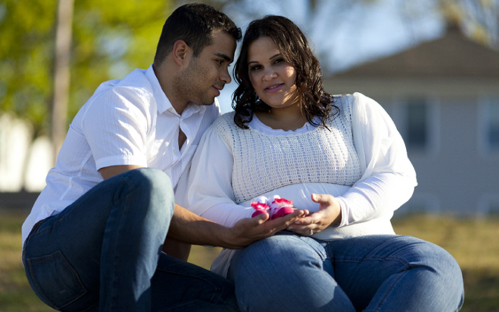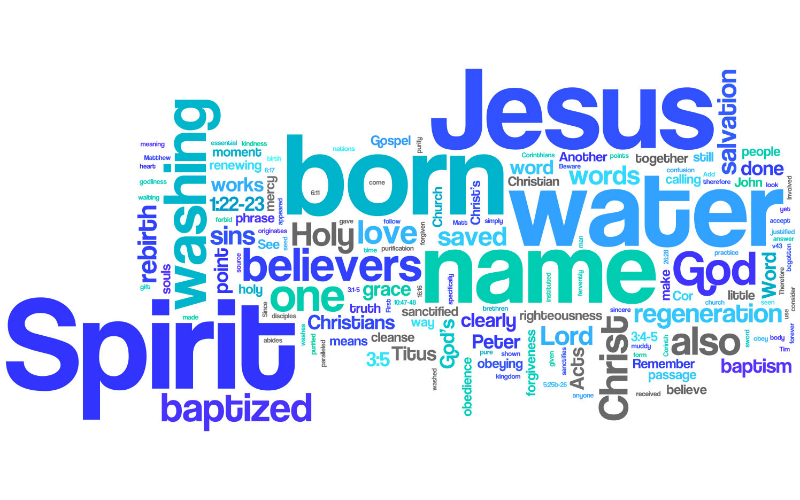President Donald Trump’s recent executive order to expand access to in vitro fertilization (IVF) has been hailed as a pro-life victory, ensuring that couples struggling with infertility have greater opportunities to conceive children. At first glance, this appears to be a policy Christians should celebrate. After all, the Bible teaches that children are a blessing from the Lord (Psalm 127:3-5). More babies are good. But as with any issue, we must approach it with a biblical lens: not just considering outcomes, but also the moral framework through which those outcomes are achieved.
The importance of the traditional family
Scripture consistently presents the family as the foundational unit of society: one man and one woman united in covenant marriage, raising children in the fear and admonition of the Lord (Genesis 2:24; Ephesians 6:4). This is the God-ordained context for bearing and raising children, providing the stability, love, and guidance necessary for human flourishing.
While IVF may help some married couples conceive, the expansion of this technology outside the traditional family unit raises serious concerns.
 When access to IVF is broadened without moral considerations, it enables single parents by choice, same-sex couples, and other non-traditional arrangements to create children outside of the biblical model of family. While all human life is valuable, the circumstances in which children are brought into the world matter. God’s design for the family is not arbitrary – it is for the good of both parents and children. Research consistently shows that children thrive best in homes with a mother and a father. This is not a matter of personal preference but of biblical and natural law reality.
When access to IVF is broadened without moral considerations, it enables single parents by choice, same-sex couples, and other non-traditional arrangements to create children outside of the biblical model of family. While all human life is valuable, the circumstances in which children are brought into the world matter. God’s design for the family is not arbitrary – it is for the good of both parents and children. Research consistently shows that children thrive best in homes with a mother and a father. This is not a matter of personal preference but of biblical and natural law reality.
Christians must be discerning and recognize that while the birth of children is a great good, the structure in which they are raised matters immensely.
The executive order fails to define 'family'
One of the most significant concerns with Trump’s executive order is that it fails to define what constitutes a family. By simply expanding access to IVF without parameters, the order does not distinguish between traditional married couples seeking to conceive and individuals or groups using reproductive technology outside of God’s design for the family. This ambiguity opens the door for the state to treat all family structures as equally valid, disregarding the biblical model of a father and mother raising their children together.
In a culture that increasingly tries to redefine marriage and family, this lack of definition is not a minor oversight – it is a fundamental issue. A government that refuses to define the family biblically will inevitably support policies that undermine it. Christians must be discerning and recognize that while the birth of children is a great good, the structure in which they are raised matters immensely. A policy that is truly pro-family must not only promote the birth of children but also uphold the family unit as God designed it.
The moral dilemmas of IVF
 Beyond family structure, the practice of IVF itself raises significant ethical concerns from a biblical perspective. Many IVF procedures result in the creation of multiple embryos, some of which are discarded, frozen indefinitely, or used for scientific experimentation. If we acknowledge that life begins at conception (Psalm 139:13-16; Jeremiah 1:5), then these embryos are not mere clusters of cells but human beings made in the image of God. Discarding or freezing them indefinitely treats human life as a disposable commodity rather than a sacred gift.
Beyond family structure, the practice of IVF itself raises significant ethical concerns from a biblical perspective. Many IVF procedures result in the creation of multiple embryos, some of which are discarded, frozen indefinitely, or used for scientific experimentation. If we acknowledge that life begins at conception (Psalm 139:13-16; Jeremiah 1:5), then these embryos are not mere clusters of cells but human beings made in the image of God. Discarding or freezing them indefinitely treats human life as a disposable commodity rather than a sacred gift.
Additionally, IVF can contribute to the commodification of children. Focusing on an adult’s desire to have children instead of what is best for the child, we ignore the context of the family and God’s design. When we create life through purely technological means, selecting embryos based on viability or even genetic traits, we risk turning children into consumer products rather than gifts from God. Parenthood becomes a right to be exercised on demand rather than a divine calling to be stewarded. This mindset undermines the biblical truth that children are not possessions to be acquired but blessings to be received with gratitude and responsibility.
A call to think biblically
For more biblical commentary on this issue, listen to the February 20, 2025, episode of “Jenna Ellis in the Morning.” |
Christians should always rejoice in the birth of children, and we should support those who long for children but face infertility struggles. However, we must also think biblically about how we pursue these desires and encourage more marriages and families first. While Trump’s executive order may have good intentions, it does not adequately address the ethical and theological concerns surrounding IVF. The pro-life position is not just about increasing birth rates but about honoring God’s design for life and family.
Notice: This column is printed with permission. Opinion pieces published by AFN.net are the sole responsibility of the article's author(s), or of the person(s) or organization(s) quoted therein, and do not necessarily represent those of the staff or management of, or advertisers who support the American Family News Network, AFN.net, our parent organization or its other affiliates.








